Welcome to one of the most active flamenco sites on the Internet. Guests can read most posts but if you want to participate click here to register.
This site is dedicated to the memory of Paco de Lucía, Ron Mitchell, Guy Williams, Linda Elvira, Philip John Lee, Craig Eros, Ben Woods, David Serva and Tom Blackshear who went ahead of us.
We receive 12,200 visitors a month from 200 countries and 1.7 million page impressions a year. To advertise on this site please contact us.
|

|
|
RE: Which scales?
|
You are logged in as Guest
|
|
Users viewing this topic: none
|
|
Login  | |
|

   
Ricardo
Posts: 14801
Joined: Dec. 14 2004
From: Washington DC

|
 RE: Which scales? (in reply to kitarist) RE: Which scales? (in reply to kitarist)
|
|
|
quote:
ORIGINAL: kitarist
quote:
No his logic is correct, and you asked this before. The reason it works is Augmented 6 harmonic function/tritone sub, etc etc all discussed already.
I thought he was arguing that normal E phrygian scale does not have a leading tone, so that's why he added an additional tone to the scale - D# - so the scale can have a leading tone. The implicit assumption there was that the usual E phrygian does not have a leading tone. But it does - F - so if he wanted to add D# anyway, he should have explained its addition with different arguments - in fact the argument about aug 6 harmonic function that you present.
So, more specifically, my objection here was to the rationale for adding it, rather than for whether D# works - it does as you say because, once you have it, it ALSO wants to resolve to E, and you provided the aug 6 framework to show that before.
I agree that he should have said D# was the SAME leading tone as used in E major or E minor keys, so he is adding it for the same functional reason.
_____________________________
CD's and transcriptions available here:
www.ricardomarlow.com
|
|
|
|
REPORT THIS POST AS INAPPROPRIATE |
Date Apr. 13 2020 18:37:43
 |
|

   
mark indigo
Posts: 3625
Joined: Dec. 5 2007

|
 RE: Which scales? (in reply to Ricardo) RE: Which scales? (in reply to Ricardo)
|
|
|
quote:
people .... want a single scale to learn and THAT explains all Flamenco,
I think there are two things going on here, that actually both come from the OP's question
quote:
Which scales? ....The purpose is picado runs... and learning/improvising falsetas.
So one thing is what is the scale or scales used for a fast run remate. Por Arriba that is historically mostly pretty straight up E phrygian with often G# instead of or as well as G natural, and often other chromatic additions (especially Sabicas).
The other one is what scale/s to learn that will help with learning or creating falsetas, and that leads into this desire to nail down the one single scale that explains everything.
But as soon as you go down the rabbit hole of trying to "explain" everything with one scale you have the "problem" (it's not a problem, but....) or the E major home chord and phrygian scale with G natural. So you have to have Phrygian dominant as well, and then someone thinks it would be cool to combine the two and you have the octatonic messiah complex developing.... but then someone else wants to have the leading tone as well and you have a 9 note scale, and then really you might as well bung the rest in and have the whole chromatic caboodle!
I while back I tried to find how many phrygian type scales there were already out there, and find quite a few interesting 7 note options, as well as an octatonic (but not THAT one!). By "phrygian type scales" I meant scales that start with semi-tone from root to flat second, but avoiding anything that was too close to Locrian).
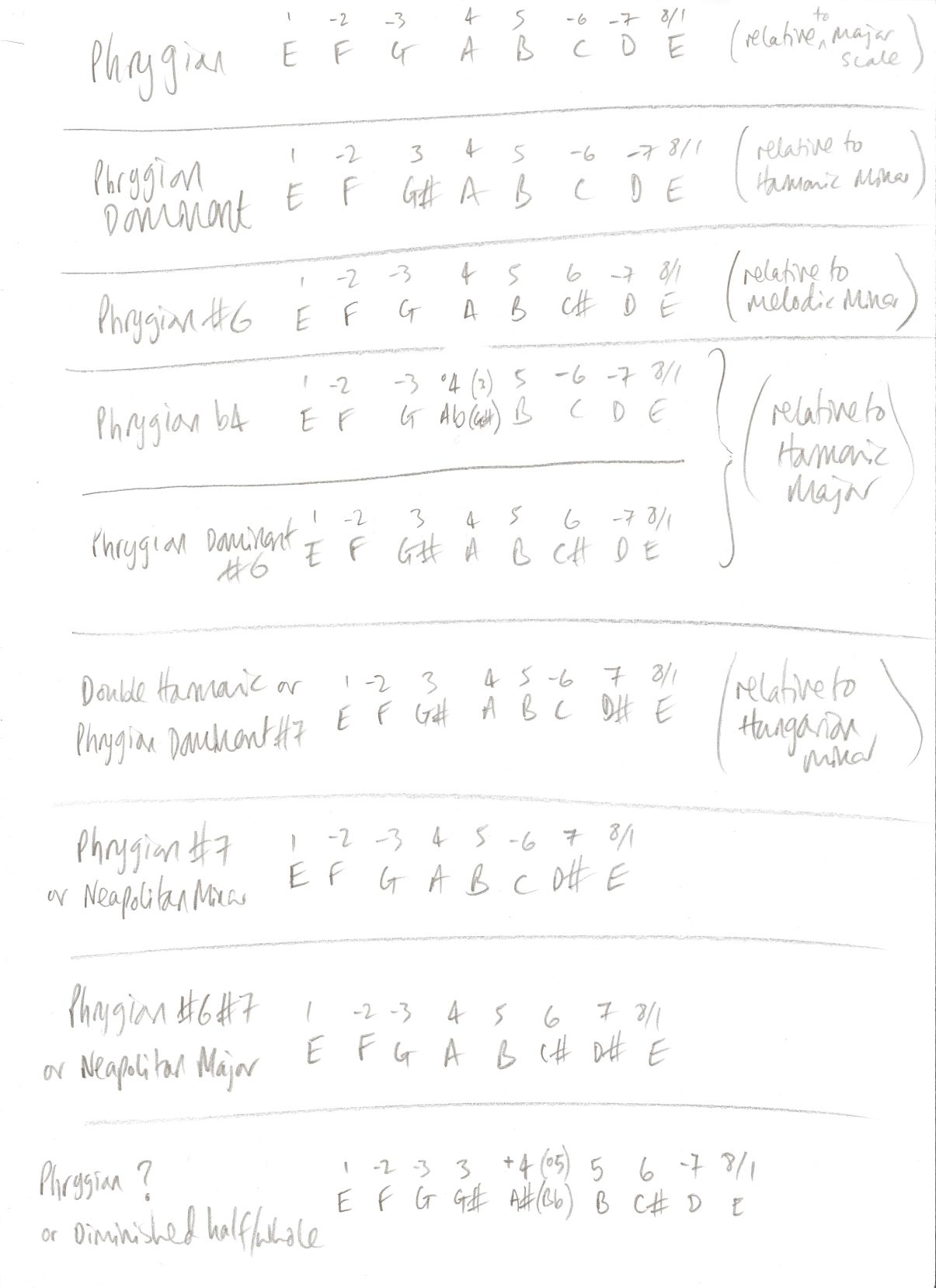
Images are resized automatically to a maximum width of 800px
 Attachment (1) Attachment (1)
_____________________________
|
|
|
|
REPORT THIS POST AS INAPPROPRIATE |
Date Apr. 15 2020 17:20:28
 |
|

   
devilhand
Posts: 1598
Joined: Oct. 15 2019

|
 RE: Which scales? (in reply to mark indigo) RE: Which scales? (in reply to mark indigo)
|
|
|
What about this one?
1 b2 b3 #4, 5 b6 7
E, F, G, A#, B C, D#
It's actually Phrygian#7 on your list with a raised 4th scale degree. Inspired by the quote of Mr. Marlow
quote:
not to mention the useful occurrence of scales that need F# or Bb in context that you are deliberately avoiding, and occurring way more frequently than several on your list
@Mr.Marlow
You keep mentioning lydian scales. What is so special about them? A few pages back in this thread you wrote
quote:
From now on I’m gonna tell people only play lydian scales... lydian, lydian dominant, lydian #9, lydian #6, lydian augmented, lydian chromatic, lydian #1 (lol) etc. There’s the final answer on this.
_____________________________
Say No to Fuera de Compás!!!
|
|
|
|
REPORT THIS POST AS INAPPROPRIATE |
Date Apr. 15 2020 19:15:01
 |
|

   
mt1007
Posts: 162
Joined: Jan. 19 2011

|
 RE: Which scales? (in reply to devilhand) RE: Which scales? (in reply to devilhand)
|
|
|
quote:
ORIGINAL: devilhand
What about this one?
1 b2 b3 #4, 5 b6 7
E, F, G, A#, B C, D#
It's actually Phrygian#7 on your list with a raised 4th scale degree. Inspired by the quote of Mr. Marlow
quote:
not to mention the useful occurrence of scales that need F# or Bb in context that you are deliberately avoiding, and occurring way more frequently than several on your list
@Mr.Marlow
You keep mentioning lydian scales. What is so special about them? A few pages back in this thread you wrote
quote:
From now on I’m gonna tell people only play lydian scales... lydian, lydian dominant, lydian #9, lydian #6, lydian augmented, lydian chromatic, lydian #1 (lol) etc. There’s the final answer on this.
The only way to find out what is special about the lydian scales or any for that matter is to play them, and the chords they generate on every degree. That's the fun part. Man no short cuts like I said before you got to put in the work. You can't expect Ricardo to spoon feed you/us/me all the time. Listen to what you are playing thats the only to know for sure, is by checking with your ear...
|
|
|
|
REPORT THIS POST AS INAPPROPRIATE |
Date Apr. 15 2020 19:37:59
 |
|

   
Ricardo
Posts: 14801
Joined: Dec. 14 2004
From: Washington DC

|
 RE: Which scales? (in reply to devilhand) RE: Which scales? (in reply to devilhand)
|
|
|
quote:
You keep mentioning lydian scales. What is so special about them? A few pages back in this thread you wrote
quote:
From now on I’m gonna tell people only play lydian scales... lydian, lydian dominant, lydian #9, lydian #6, lydian augmented, lydian chromatic, lydian #1 (lol) etc. There’s the final answer on this.
_____________________________
Because...when you run the E Phrygian (naturals) in flamenco, it’s usually in place of the F chord harmony. It therefore functions as F lydian, and it resolves to E where the intended harmony change to tonic is. So any of those lydian scales that function in place of or imply the F chord in context of a falseta, are serving to create the necessary tension that begs resolution to tonic. A far more useful concept than running E Phrygian scales over an E chord... which a lot of people seem to think what Flamenco is all about. Their ears are not yet adjusted to the interesting harmonic movement and rhythmic phrasing going on, so the static E Phrygian modal sound becomes the popular superficial view of Flamenco in general.
_____________________________
CD's and transcriptions available here:
www.ricardomarlow.com
|
|
|
|
REPORT THIS POST AS INAPPROPRIATE |
Date Apr. 15 2020 20:16:29
 |
|

   
mark indigo
Posts: 3625
Joined: Dec. 5 2007

|
 RE: Which scales? (in reply to devilhand) RE: Which scales? (in reply to devilhand)
|
|
|
quote:
What about this one?
1 b2 b3 #4, 5 b6 7
E, F, G, A#, B C, D#
It's actually Phrygian#7 on your list with a raised 4th scale degree.
Does it have a name? What other musical context does it exist in? My list is of scales that exist outside of flamenco in other kinds of music, in scale books or online or whatever, often under another name. For example, the second mode of melodic minor is usually called dorian b2 in jazz sources, but it is also phrygian #6 (actually I found a reference to it being used in middle eastern folk music as well). The mode of harmonic major that i called phrygian dominant #6 is also called mixolydian b2. It's not meant to be a list of every possible phrygian type scale, or a list of scales which describe or explain what is actually happening in flamenco music. 
_____________________________
|
|
|
|
REPORT THIS POST AS INAPPROPRIATE |
Date Apr. 16 2020 8:09:29
 |
|
 New Messages New Messages |
 No New Messages No New Messages |
 Hot Topic w/ New Messages Hot Topic w/ New Messages |
 Hot Topic w/o New Messages Hot Topic w/o New Messages |
 Locked w/ New Messages Locked w/ New Messages |
 Locked w/o New Messages Locked w/o New Messages |
|
 Post New Thread
Post New Thread
 Reply to Message
Reply to Message
 Post New Poll
Post New Poll
 Submit Vote
Submit Vote
 Delete My Own Post
Delete My Own Post
 Delete My Own Thread
Delete My Own Thread
 Rate Posts
Rate Posts
|
|
|
Forum Software powered by ASP Playground Advanced Edition 2.0.5
Copyright © 2000 - 2003 ASPPlayground.NET |
0.109375 secs.
|


 Printable Version
Printable Version





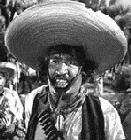
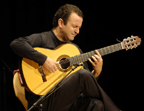



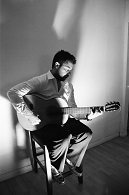
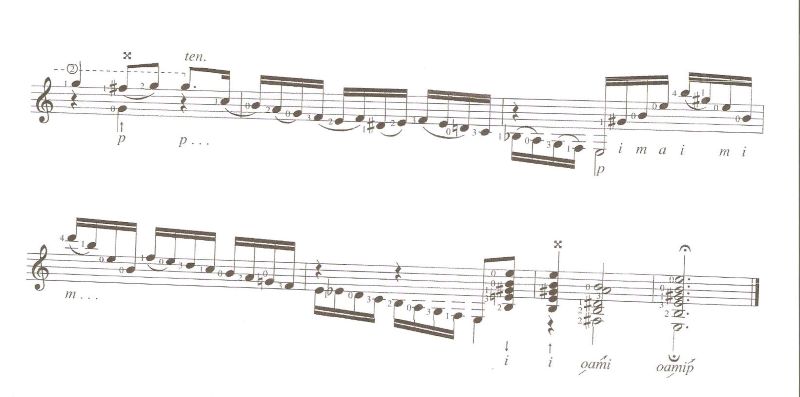
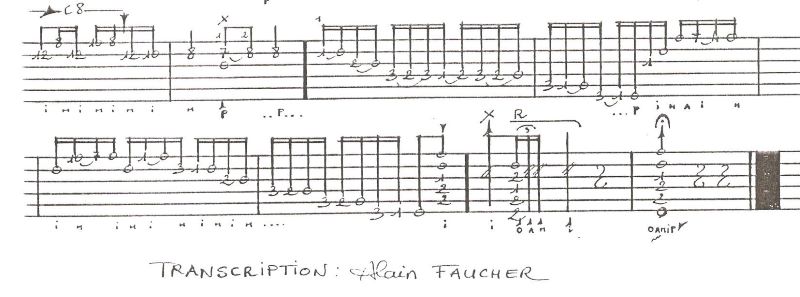
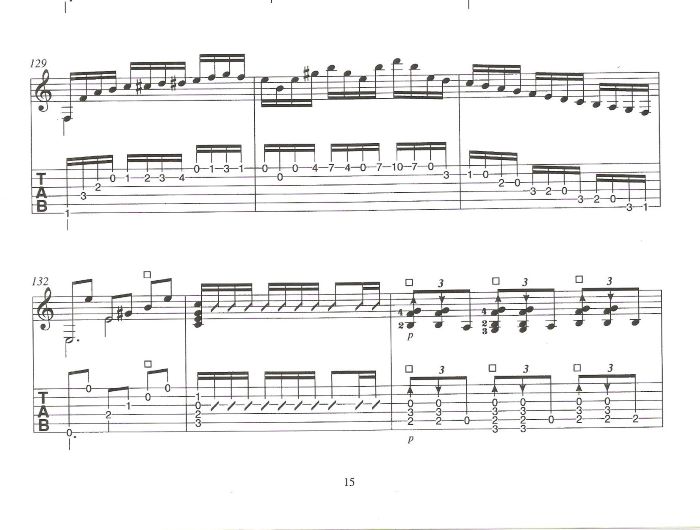
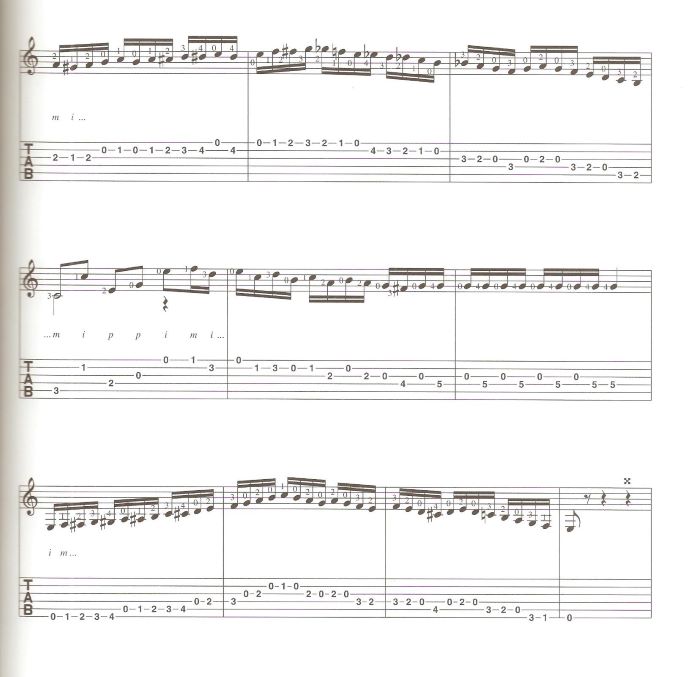
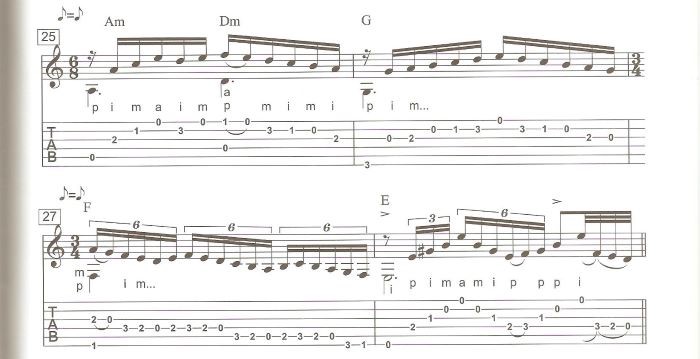

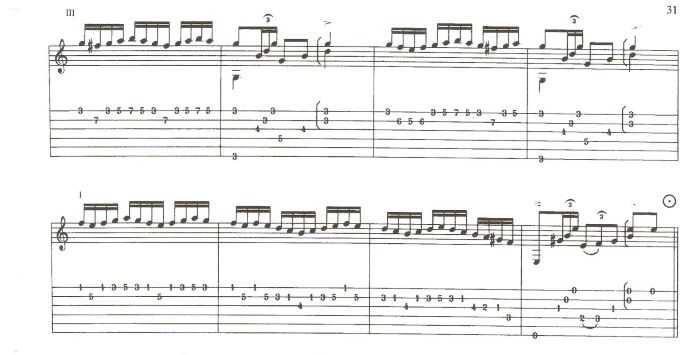
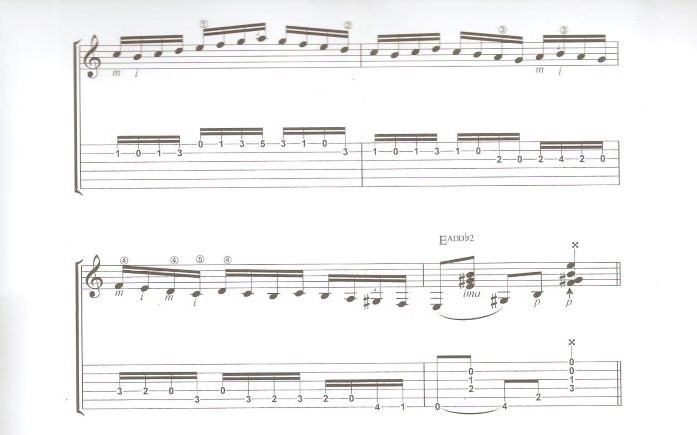
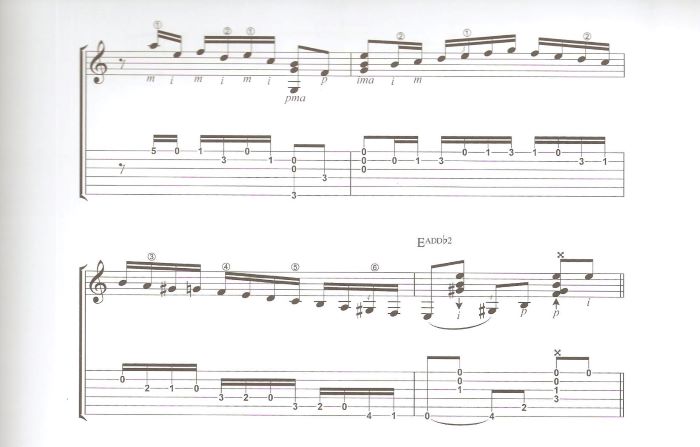

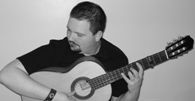
 New Messages
New Messages No New Messages
No New Messages Hot Topic w/ New Messages
Hot Topic w/ New Messages Hot Topic w/o New Messages
Hot Topic w/o New Messages Locked w/ New Messages
Locked w/ New Messages Locked w/o New Messages
Locked w/o New Messages Post New Thread
Post New Thread